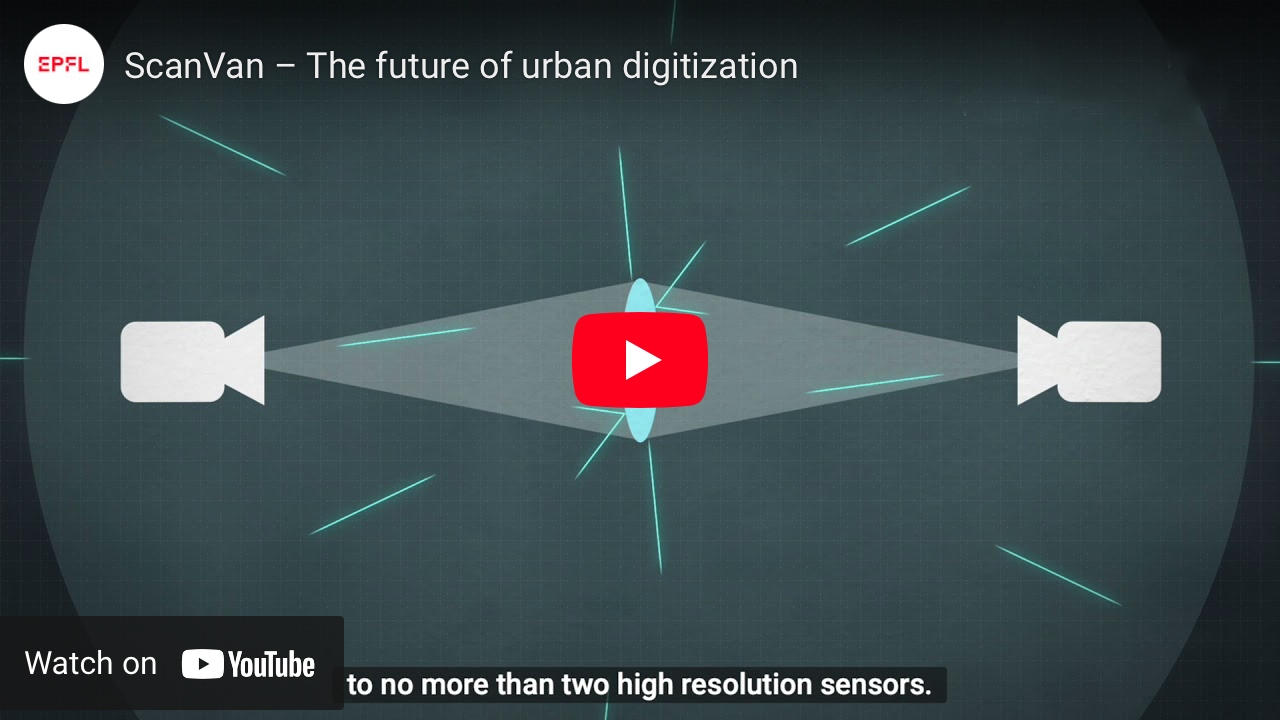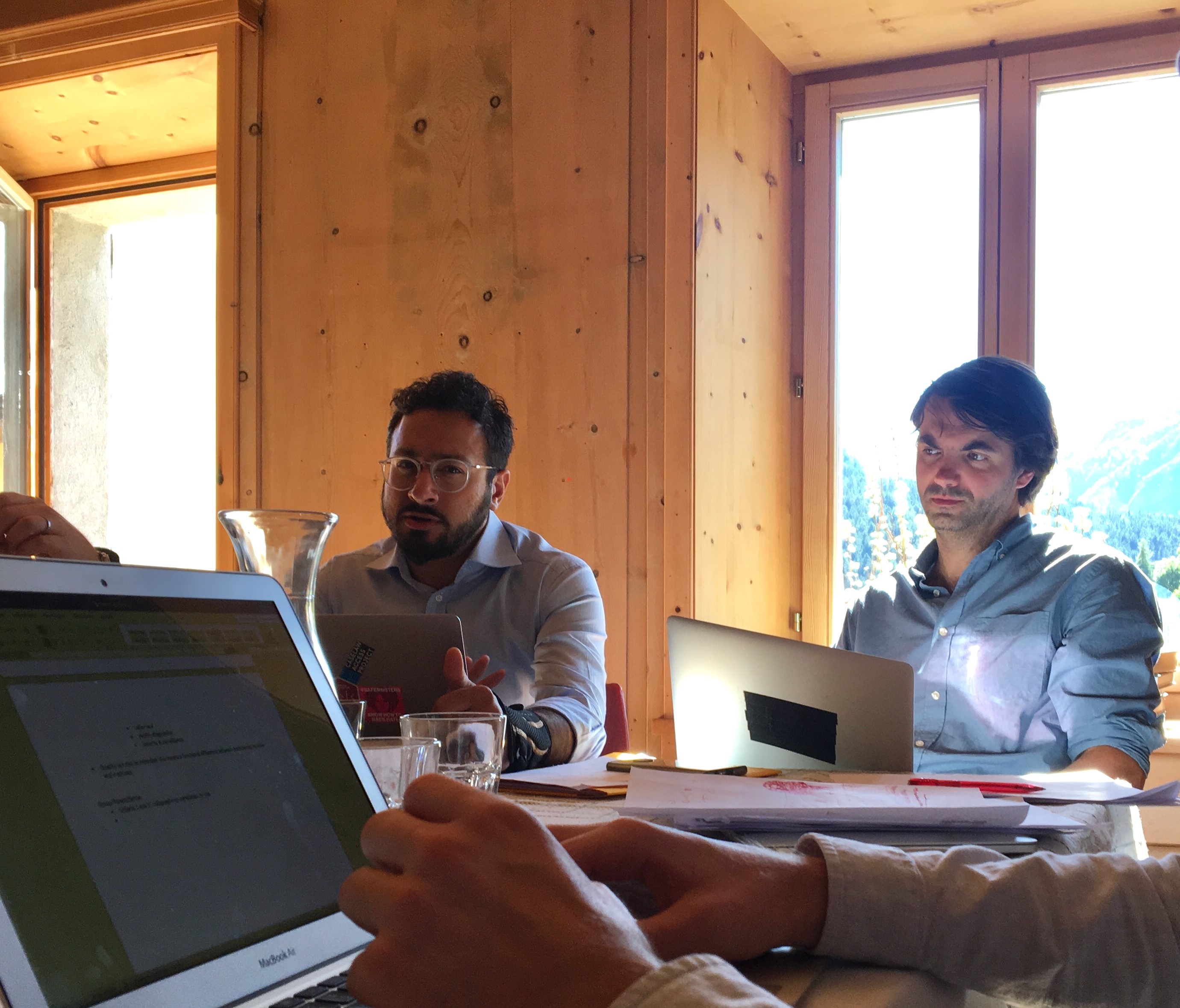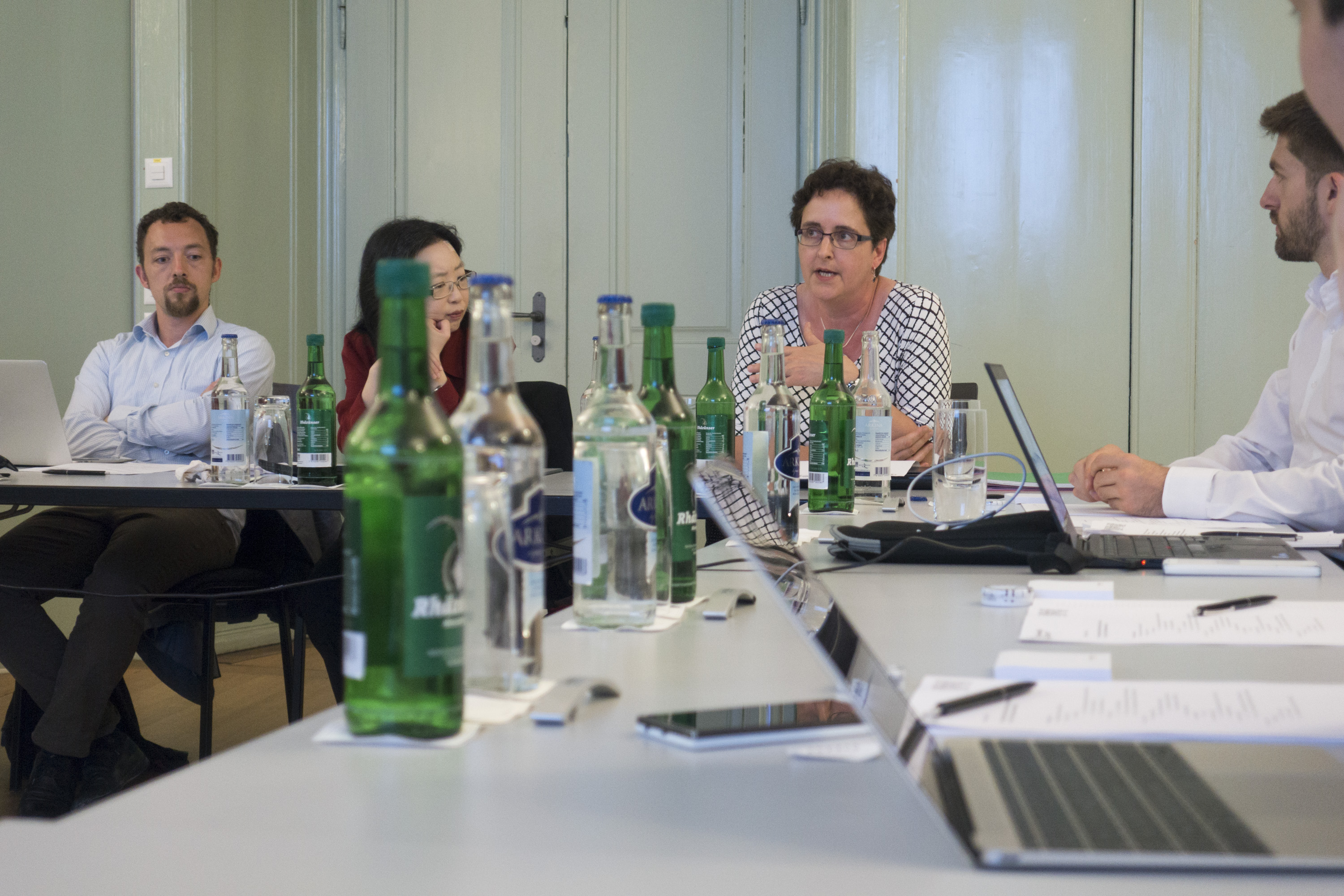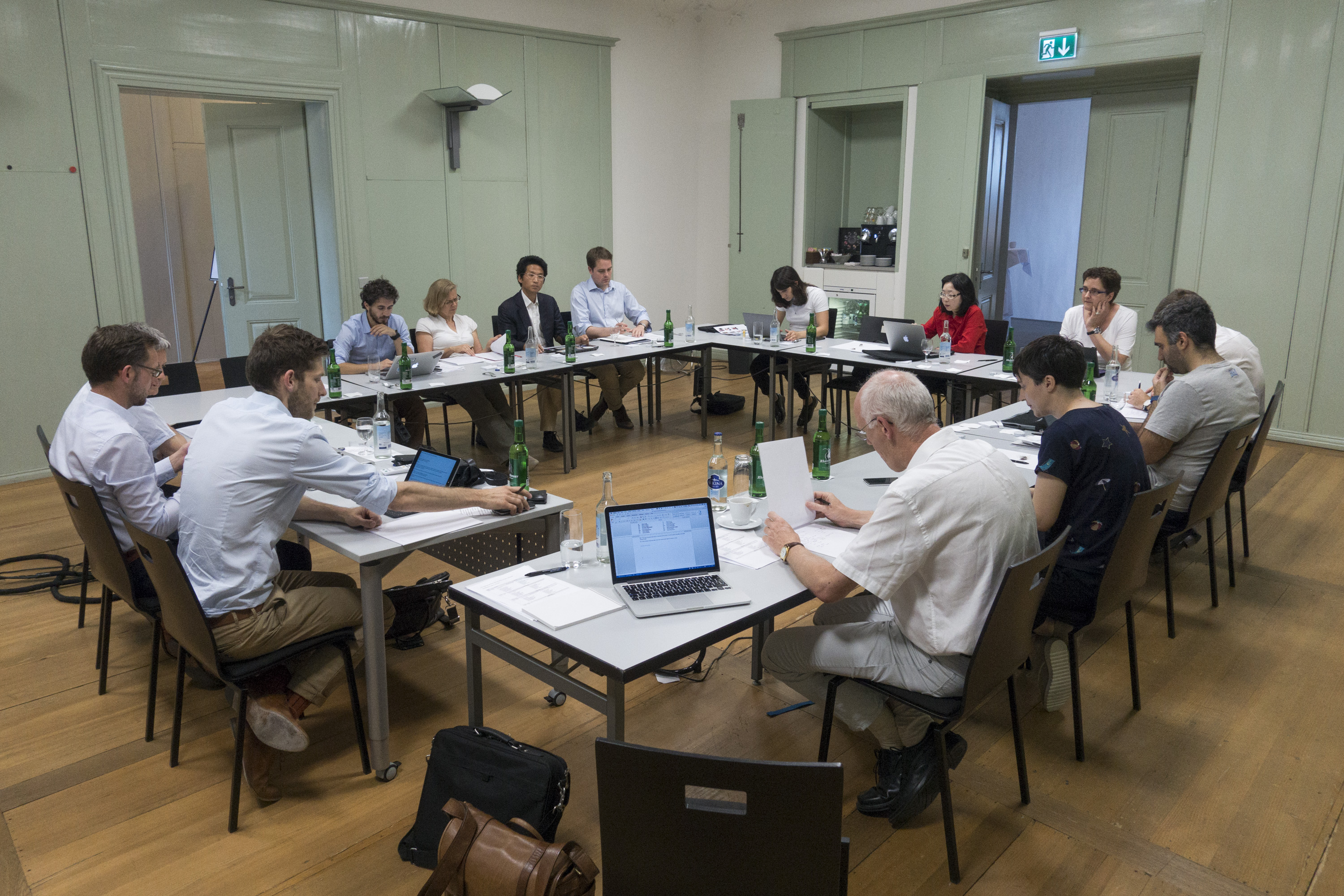Research projects

The ITSL is working on a number of research projects within the scope of its research areas.
Completed research projects
Governance of Disinformation in Digital Public Spheres
Joint Research Project of the Center for Information Technology, Society, and Law (ITSL) and the fög – Research Institute for the Public Sphere and Society at the University of Zurich.
Disinformation has gained importance in the context of digitalization. New communication channels, first and foremost social media and messenger services such as Whatsapp, Telegram or Signal, enable the exchange and dissemination of information to a large audience, including intentionally and unintentionally spreading false news. In Switzerland, too, there is currently heightened concern about problematic effects of disinformation.
Looking at the governance of disinformation, there is currently a patchwork of approaches, rules and instances. So far, the subject has been approached from either a communication and media studies or a legal perspective, but the two perspectives have never been linked. The goal of our research project is now to show where concrete gaps in regulation and enforcement exist. These findings form the basis for the formulation of governance options with regard to disinformation, which take into account state, organizational and individual measures and may act as a basis for political and legal measures.
Governance Mechanisms for Access and Use of Data in Public Health Crises
Joint research project of the Center for Information Technology, Society, and Law (ITSL) at the University of Zurich and the University of Geneva.
Access to data to inform decision making is of utmost importance in a public health crisis. As the current crisis evidences, access to and effective use of relevant data is not always possible. The research project aims to identify existing barriers for access and use of data in public health crises and to develop alternative governance mechanisms to facilitate access to and use of the data needed to meet public health crises.
Cultural, legal and infrastructural barriers in particular were identified as the main forms of barriers. To overcome these barriers, substantial progress will be necessary with regard to data literacy, interoperability and novel approaches to data protection law. While the focus of this project is to improve the access and use of data in public health crisis, some fundamental shifts are necessary that also apply to “normal” times to enable appropriate reactions to future health crises.
Regulatory Framework: Secondary Publication Rights and Open Access as a regulatory challenge
Project duration: October 1, 2022 to September 30, 2023
Project team: The research project funded by swissuniversities is a cooperation of various institutions. The Center for Information Technology, Society, and Law (ITSL) of the University of Zurich, is the leading house of the project and responsible for the management and organization of the project.
The project partners are:
- University of Basel, represented by Prof. Dr. Alfred Früh, professor of private law with a focus on life sciences law and intellectual property law;
- University of Geneva, represented by Prof. Dr. Gian Paolo Romano, Professor of private international and civil procedure law and family law at the University of Geneva;
- Università della Svizzera italiana (USI) represented by Dr. Anna Picco-Schwendener and Suzanna Marazza;
- School of Management Fribourg (HEG-FR), represented by Maya Dougoud, associate professor HES;
- Library University of Zurich, represented by Prof. Dr. Rudolf Mumenthaler and Dr. Andrea Malits;
- SWITCH, represented by Anna Kuhn and Benedikt Saner.
Project description
In the context of publishing scientific publications, authors usually assign their copyrights to publishers. In current practice, the possibilities for parallel publication – whether with publishers or on repositories – are limited and dictated by publishers. Therefore, a secondary publication of the publication proofs difficult. Universities and research funding agencies have long been demanding that publicly funded research should be freely accessible to all interested parties. Free access to scientific publications via the Internet is the basic idea behind the concept of Open Access. This increases the pressure on publishers to allow secondary publications. At the same time, it increases legal uncertainty for authors about secondary publications and Open Access.
From a legal perspective, the question arises as to whether and how Switzerland should regulate a secondary publication right. In addition to this question, other regulatory challenges are being investigated in the context of Open Access.
The project is divided into two parts, which will be elaborated in different areas of work.
- First part: The first part examines the secondary publication right. Within this framework, the project team will identify possible solutions for a secondary publication right from a comparative law perspective and, based on this, develop a possible approach for Swiss law. In addition, guidelines and concrete decision-making aids will be created to raise awareness and support researchers.
- Second part: In the second part, which deals with Open Access as a regulatory challenge, the constitutional questions of Open Access will be analyzed, and labor and data protection challenges will be examined. Two further areas of work address questions on the transport of goods and services regarding publications and the reuse of research results, as well as procurement and antitrust law challenges. Within the project, workshops will be held for researchers, lecturers, librarians, and other interested parties to inform them about the possibilities under current law and in view of a possible introduction of a secondary publication right.
The results of the project are expected to be presented to interested parties at a public event in the fall of 2023.
ScanVan
The ScanVan project team at EPFL has developed a new "spherical" camera and a dedicated vehicle to allow the 3D-digitization of Swiss and European cities. While conventional cameras always have a limited field of view, the ScanVan camera is capable of perceiving in all directions simultaneously. Using photogrammetry, the images are used to generate a 3D point cloud of the captured area. Mounted on a small car, the system permits to digitise a city simply by driving once in each of its streets. The project was funded by the Swiss National Science Foundation as part of the National Research Programme 75 "Big Data" (NRP 75).
The ITSL has joined the research project in the spring of 2020 to analyze the potential privacy issues in the light of Swiss and European data protection law. This input led to the implementation of different measures to ensure privacy by design. The interface was designed to incorporate this aspect intrinsically into its operation. Algorithms were programmed to erase people and vehicles from the captured spherical images. Additionally, an annotation interface makes it easy for anyone to point out privacy issues and request the removal of the respective data.
ScanVan: Data Protection Analysis (PDF, 2 MB)
More information about this project is available on the ScanVan project website and in the following video:
Automated Decision-Making
Technological progress – especially in the field of artificial intelligence (AI) or machine learning – leads to decisions being made automatically in more and more areas of daily life. Because it is ultimately algorithms that convey a result on the basis of certain decision-relevant parameters, the literature uses the terminologies "automated" and "algorithmic" decisions interchangeably.
Policymakers have become aware of the automation of everyday life and the associated delegation of certain human decision-making processes to machines. Since May 2018, for example, the European General Data Protection Regulation (GDPR) addresses this phenomenon in different provisions and recitals. Although such legal approaches exist, research on how policymakers should regulate issues surrounding automated decision-making is still in its infancy.
In this research project funded by the Hasler Foundation, the ITSL examines the nature and characteristics of automated decision-making on the one hand, and the need for and design of regulation on the other. The combination of these two complementary parts provides answers to the central research question of how to deal with automated decision-making from a regulatory point of view.
These questions were discussed in public on 13 November 2019 at an event hosted by ITSL. Individual contributions to this event were published in extended form in the Schweizerischen Zeitschrift für Wirtschafts- und Finanzmarktrecht in early 2020. From 12 to 14 September 2019, ITSL held an international expert workshop with scientists in the field of law, communications studies and computer science. The workshop was sponsored by the Swiss National Science Foundation (SNSF) and its main insights are compiled in a Workshop Report (PDF, 440 KB).
|
|
|
|
Artificial Intelligence Briefing (Foundation for Technology Assessment)
On behalf of the Foundation for Technology Assessment (TA-Swiss), the ITSL in conjunction with other researchers from Switzerland and Austria conducted an interdisciplinary study on the risks and opportunities of Artificial Intelligence (AI). The research group consisted of researchers from the fields of informatics, business administration, economics, educational sciences, communication science, law and ethics. The study’s main objective was enabling policy makers to make informed decisions with regard to AI. The interdisciplinary study evaluates the impact AI has on four main areas: the world of work, education, consumption and administration. An emphasis is put on deep learning algorithms; however, other forms of AI are also subject to investigation. The study was presented in April under the name «Wenn Algorithmen für uns entscheiden: Chancen und Risiken der künstlichen Intelligenz» during a media press conference and is available here.
Foundations of the Right to Privacy
Nowadays, information and communication technologies allow mass collection and analysis of personal data. Against this background, the right to privacy is of major scholarly interest. But despite the fact that this right’s origins date back to the Universal Declaration of Human Rights (UDHR) in 1948, its exact scope remains relatively blurry. In this research project, we examine the foundations of the right to privacy and analyse how modern data protection law draws on this right.
Between Solidarity and Personalisation - Big Data in the Insurance Industry
The insurance industry has a genuine interest in Big Data applications. By applying profiling or predictive analytics techniques and by using quantified self applications, specific risks of an insured person can be assessed more precisely. At the same time, the moral foundation of any insurance system is solidarity; individual risks should be distributed among all insured persons. These conflicting goals are to some extent paradigmatic for the challenges brought about by digitalization. The ITSL participated in an interdisciplinary project funded by the National Research Program (NRP 75 – Big Data) which analysed this conflict and brought together researchers from ethics, economics and law. The results of this research may by found here
Data Ownership
The increasing number of data-driven business models as well as the growing importance and value of data have spurred the question whether data belong to someone, and if so, to whom. While the topic has already entered the political sphere, a number of key questions remain unanswered or were, to date, only touched upon briefly. A one-year research project funded by the Hasler Foundation addresses these fundamental questions regarding such a potential exclusivity right on data: How can such a right be justified? What would be its scope and limitations? And how could it be implemented?
These questions were discussed in public on 29 March 2017 at an event hosted by ITSL. From 6 to 8 July 2017, ITSL held an international expert workshop with scientists in the field of law and computer science. The workshop was sponsored by the Swiss National Science Foundation (SNSF) and its main insights are compiled in a Workshop Summary (PDF, 223 KB).
|
|






